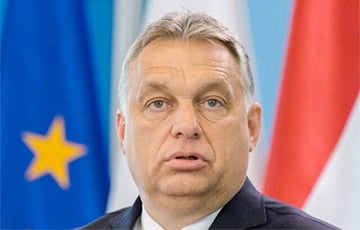Poll: Hungarians Unhappy With Orbán's Rule
2- 23.05.2025, 11:24
- 5,100

Significant differences in attitudes between age groups were also recorded.
Hungarian society is radically divided in its opinions about Prime Minister Viktor Orbán's 15 years in power.
This is evidenced by the results of a recent poll cited by Telex, writes "European Truth".
Half of the respondents believe that Orbán's government has had a rather or clearly negative impact on the country's development. At the same time, 39% assess his rule as positive.
The voters of the ruling Fidesz party support the prime minister almost unanimously: 88% consider his activity as positive, and only 1% - as very negative.
The opposite picture is demonstrated by the voters of the opposition Tisa party: 87% of them assessed Orban's influence as negative, and only 1% - as very positive.
Significant differences in views between age groups were also recorded. Only among citizens over 60 years old there is a relative prevalence of positive assessments, while almost 60% of young people from 18 to 25 years old expressed a negative opinion about Orbán's "era".
Different views can also be traced in the issue of the state of democracy. 40% of Fidesz supporters believe that democracy in the country has improved, while only 2-3% of opposition voters think so. The majority of opposition voters are sure that the situation has worsened.
The respondents also spoke about their well-being during Orbán's rule. 45% of supporters of the ruling Fidesz party believe that they are living better than 15 years ago, while 66% of voters of the opposition Tisa party said that their welfare has deteriorated.
Similar sentiments prevail among voters of other opposition parties.
The majority of respondents (65%) agree that the Orban government during this time has mainly contributed to the enrichment of the rich, and also believe that success is possible only if you have connections with the government. Even 45% of Fidesz supporters recognize the importance of political acquaintances for advancement.
In a comparison between Orban and opposition leader Peter Madjar, most believe the latter would do a better job on key issues - fighting corruption, health care, education, economic development.
Orban is credited only with strengths in migration policy and family support.
Despite this, almost 40% of Hungarians do not believe Orban's government can be changed democratically. However, the number of those who believe in the possibility of change has grown over the past five years - the most optimistic (54%) are the voters of the Tisza party.
It should be noted that in recent months Hungarians have protested against a number of Orban's decisions. In particular, we are talking about the bill against public organizations and independent media.











